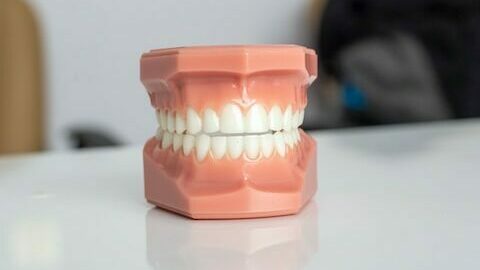As humans, we are always fascinated by the structure and function of our body parts, and our teeth are no exception. The shape of our teeth plays an important role in their function, and there are several factors that determine their shape. While teeth come in a variety of shapes and sizes, their basic structure is similar across most people. Teeth are composed of a hard outer layer called enamel, a softer inner layer called dentin, and a central nerve and blood vessel bundle called the pulp.

One of the main reasons why teeth are not perfectly square is because of their function. Teeth are designed to bite and chew food, and their shape helps them to do this effectively. Square teeth would not be as efficient at grinding and crushing food as rounded teeth because the corners of square teeth would not be able to make full contact with the food surface. By contrast, rounded teeth can more easily adapt to the shape of the food, allowing for a more complete and effective bite. This is why most people have rounded teeth, and why square teeth are relatively rare.
However, tooth shape is not solely determined by function. Genetics plays a significant role in determining tooth shape and size. Just like other physical characteristics, such as eye color or hair texture, the shape of your teeth is largely determined by your genes. Certain genes control the development of tooth shape and size, and these genes can be passed down from parents to their children. This is why some people may have naturally rounded teeth, while others may have more square-shaped teeth.
Wear and tear is another important factor that can affect the shape of your teeth over time. As you use your teeth to bite and chew food, they can become worn down and flattened. This is especially true if you consume a lot of hard or crunchy foods, such as nuts or hard candy. Additionally, teeth grinding or clenching, a condition known as bruxism, can also cause teeth to become worn down and rounded over time. This is why it is important to take care of your teeth and to avoid habits that can cause excessive wear and tear.
Dental procedures can also affect the shape of your teeth. For example, if you have a cavity that needs to be filled, your dentist may need to remove a portion of your tooth to make room for the filling material. This can alter the shape of your tooth, making it more rounded or flattened. Similarly, if you have a tooth that is cracked or broken, your dentist may need to reshape it in order to restore its function and appearance. While dental procedures can be necessary for maintaining good oral health, they can also alter the natural shape of your teeth.
Finally, tooth shape can also be influenced by cultural and societal factors. In some cultures, rounded teeth may be considered more attractive or desirable than square teeth, while in other cultures, the opposite may be true. Additionally, tooth shape can also be influenced by fashion trends, such as the current trend for teeth to be straight and white. This highlights the importance of recognizing the influence that cultural and societal factors can have on our perceptions of beauty and desirability, and the impact this can have on our self-esteem and confidence.
In conclusion, the shape of our teeth is determined by a complex interplay of factors, including genetics, tooth function, wear and tear, dental procedures, and cultural and societal factors. While rounded teeth are more efficient at biting and chewing food, tooth shape can vary widely from person to person. It is important to take care of our teeth and to seek dental care when necessary to maintain their natural shape and function.